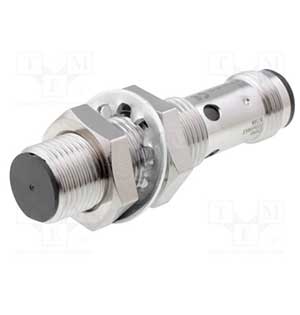Owning a plywood boat comes with a unique set of responsibilities and rewards. Plywood boats are known for their light weight, strength, and ease of construction, making them a popular choice among boating enthusiasts. However, to maximize their longevity and maintain their performance, consistent and thorough maintenance is essential. Here are some expert tips for extending the life of your plywood boat. First and foremost, proper storage is crucial. When your boat is not in use, store it in a dry, covered area to protect it from the elements. Exposure to rain, sun, and fluctuating temperatures can cause the plywood to warp, delaminate, or rot. If indoor storage is not an option, invest in a high-quality boat cover that fits snugly and provides adequate protection against moisture and UV rays. Regular inspection and timely repairs are key to maintaining your plywood boat. Inspect the boat thoroughly at least once a season, paying close attention to the hull, joints, and any areas where hardware is attached. Look for signs of water intrusion, such as discoloration, soft spots, or mildew.

For minor repairs, use marine-grade epoxy resin and fiberglass cloth to seal and reinforce damaged areas. For more extensive repairs, consult a professional to ensure the structural integrity of the boat is maintained. 10+ Expert Plywood Boat Maintenance Tips Sealing and waterproofing are fundamental practices in plywood boat maintenance. Applying a high-quality marine varnish or epoxy coating to the exterior and interior surfaces of the boat will create a protective barrier against moisture. Pay particular attention to the seams and edges, as these are the most vulnerable areas for water penetration. Reapply the coatings as needed, typically every one to three years, depending on the boat’s usage and exposure to the elements. Proper ventilation is another important factor in extending the life of your plywood boat. Ensure that the boat is well-ventilated when not in use to prevent the buildup of moisture inside the cabin and compartments. Installing vents or leaving hatches slightly open can help improve airflow and reduce the risk of mold and mildew growth.
Routine cleaning and maintenance can also significantly prolong the life of your boat. Wash the boat regularly with fresh water and mild soap to remove salt, dirt, and debris. After washing, allow the boat to dry completely before covering or storing it. Check and maintain the hardware, such as cleats, hinges, and fasteners, ensuring they are in good working condition and free of corrosion. Lubricate moving parts to keep them functioning smoothly. Lastly, consider applying antifouling paint to the hull if your boat spends a lot of time in the water. This specialized paint prevents the growth of barnacles, algae, and other marine organisms that can damage the plywood and reduce the boat’s performance. Choose an antifouling paint that is compatible with plywood and follow the manufacturer’s instructions for application and reapplication. Regular care and attention not only protect your investment but also enhance your boating experience, allowing you to enjoy the water with confidence and peace of mind.
In industrial applications, safety and performance are crucial factors that determine the efficiency and reliability of machinery. Pneumatic cylinders, widely used in various sectors such as manufacturing, automotive, aerospace, and packaging, play a significant role in ensuring smooth and controlled motion. Leading pneumatic cylinder manufacturers are continuously innovating to enhance the safety, durability, and performance of their products, addressing industry demands for higher efficiency, precision, and reliability. One of the key advancements in pneumatic cylinder technology is the integration of improved materials and coatings that enhance durability and resistance to harsh environmental conditions. Manufacturers are now using corrosion-resistant stainless steel, anodized aluminum, and specialized coatings to protect against wear, moisture, and extreme temperatures. This ensures a longer lifespan for the cylinders, reducing maintenance costs and downtime in industrial operations. Additionally, self-lubricating seals and composite materials further improve operational efficiency by minimizing friction and extending service life.

Safety remains a top priority for industries utilizing pneumatic cylinders, and manufacturers are incorporating advanced safety features to prevent accidents and equipment failures. One such innovation is the use of cushioning technology, which absorbs impact forces and reduces sudden movements, preventing damage to machinery and reducing workplace hazards. Additionally, manufacturers are integrating sensors and electronic feedback systems into pneumatic cylinders, allowing real-time monitoring of position, speed, and pressure. These smart cylinders help detect potential failures early, enabling predictive maintenance and reducing the risk of unexpected breakdowns. Energy efficiency is another critical aspect that manufacturers are addressing to optimize industrial operations. Traditional pneumatic systems often experience energy losses due to leakage and inefficiencies in air compression. To overcome this, hebai pneumatic cylinders are designed with precision-engineered seals, improved valve technology, and optimized airflow control to minimize energy waste.
Additionally, advanced flow control mechanisms allow for precise adjustments, reducing unnecessary air consumption and lowering overall operational costs. Some manufacturers are also integrating hybrid systems that combine pneumatics with electromechanical components, offering greater efficiency and performance control. Manufacturers are now offering modular pneumatic cylinders that can be easily configured to meet specific application requirements. These modular designs allow for quick assembly and integration into existing systems, reducing downtime during installation and maintenance. Furthermore, specialized cylinder designs, such as compact, rodless, and guided cylinders, cater to unique industry needs, enhancing functionality and space efficiency in complex machinery. Leading pneumatic cylinder manufacturers are continuously innovating to enhance the safety, efficiency, and reliability of their products in industrial applications. Through advancements in materials, smart technology integration, energy-efficient designs, and customizable solutions, these manufacturers are helping industries achieve higher productivity while ensuring safer working environments. As automation and smart manufacturing continue to evolve, pneumatic cylinder manufacturers will remain a vital component in driving industrial progress.
Transforming a space with high-quality painting and decorating is one of the most effective ways to bring your vision to life. Whether you are revamping a residential home or enhancing the atmosphere of a commercial setting, professional painting and decorating services can turn any area into a stunning environment. The right choice of colors, textures, and finishes not only boosts the aesthetic appeal of a space but also creates the desired mood, whether it is calm and serene or energetic and vibrant. The first step in a successful painting and decorating project understands your vision. Professionals take the time to consult with you, offering expert advice to help you select the best colors and finishes that align with your goals. Whether you are aiming for a sleek, modern look or a more traditional, cozy vibe, they will guide you in making informed decisions. Customizing the design to your personal style is essential, and skilled decorators ensure that the final result reflects your preferences.

Quality preparation is key to achieving a smooth, flawless finish. Experts in the field know that proper surface preparation can make all the difference between a mediocre job and a truly remarkable one. This includes cleaning, sanding, filling cracks, and priming the surfaces. With meticulous attention to detail, they ensure that every surface is ready to receive the paint or wallpaper. This professional touch not only improves the longevity of the finish but also enhances the overall look of the room. When it comes to technique, a skilled Toms Decor team uses a variety of methods to apply paint and wallpaper with precision. They understand the nuances of each material and are adept at using brushes, rollers, or spray equipment to achieve the perfect coat. In addition to traditional paint finishes, high-quality decorators can apply specialized techniques such as faux finishes, murals, or intricate wallpaper patterns, bringing a unique touch to any setting.
The right application ensures that the surfaces are even and long-lasting, preventing issues like streaks or peeling over time. An often-overlooked benefit of professional painting and decorating services is the efficiency they bring to a project. Experienced decorators work swiftly while maintaining the highest quality standards, ensuring that deadlines are met without compromising on the final result. This is particularly valuable for commercial spaces that need minimal disruption to daily operations. By choosing professionals, you can be confident that the job will be completed on time and to your specifications, allowing you to enjoy your revamped space sooner rather than later. A high-quality paint job or decorating project can significantly increase the value of your property. Whether you are looking to sell or simply want to enjoy an improved living or working environment, the aesthetic enhancements provided by professional decorators can have a lasting impact.